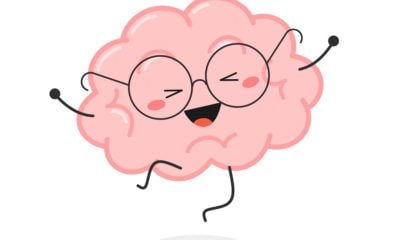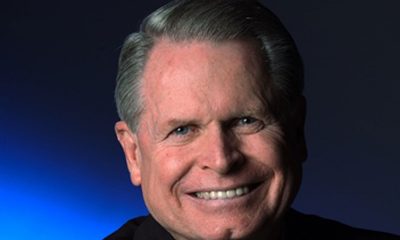Why Watching the News Sometimes Makes us Feel Powerless
Until recently, I have never been a news watcher.
I would read the news occasionally when I saw a headline I felt I needed to be informed about.
Information is important because it helps us be aware and make better decisions.
With so much turmoil and rapidly changing information happening, I have craved the news.
Lately, I have noticed that when I binge watch CNN (which means watching the different anchors deliver the same piece of news over and over) I feel anxious.
Maybe even depressed.
CNN has become like my own personal hell.
I realized it was more than that day I watched domestic terrorists storm the Capitol.
It was a sense of powerlessness.
There was nothing I could do but watch it unfold.
Why does watching the news lead us to feel powerless?
“We are becoming able to see the pursuit of external power for what it is and the futility of trying to escape the pain of powerlessness by changing the world.
When we look inward, not outward, we can dismantle the parts of our personalities that have controlled us for so long – such as anger, jealousy, vindictiveness, superiority, inferiority.” ― Gary Zukav
Most of what I watch is political news
According to Arthur C. Brooks when it comes to politics, “the people most in the know tend to be unhappier than those who pay less attention.”
He attributes this to a psychological concept called “external locus of control.”
What exactly is that? Well, The Glossary of Education Reform defines it as a belief that “successes or failures result from external factors beyond their control, such as luck, fate, circumstance, injustice, bias, or teachers who are unfair, prejudiced, or unskilled.”
There is a lot of bias, injustice, and outside circumstances that happen when you follow politics.
The only aspect of control we have is our ability to vote.
I believe it is important to gather knowledge about the candidates so you make an informed decision, but watching political commentary for hours is not the same as information gathering.
There are also many people directly affected by the decision (like the stimulus checks), which makes it harder to view as an external locus of control.
However, there is little to nothing that we can do to influence the outcome of these decisions.
We can send an email or make a phone call to our senators, but we cannot tell them how to vote.
Therefore, watching the news continuously reminds us we have no power and becomes a compulsion that robs our happiness.
It is critical that you try to remain focused on the things you can control, and safeguard your happiness, all while balancing the importance of being informed.
It can feel like walking a tightrope through a tornado, but there are things you can do.
“The factor is locus of control, a fancy name for how people view their autonomy and agency in the world.
People with an internal locus of control believe that they are responsible for (or at least can influence) their own fates and life outcomes.
They may or may not feel they are leaders, but they feel that they are essentially in charge of their lives.
Those with an external locus of control see themselves as relatively powerless pawns in some game played by others; they believe that other people, environmental forces, the weather, malevolent gods, the alignment of celestial bodies—basically any and all external events—exert the most influence on their lives.” ― Daniel J. Levitin
How to combat the feelings of powerlessness from too much news
The first thing that you can do is unplug consciously throughout the day.
This means scheduling times to do self-care.
This could be going to the gym, a daily walk, or an hour of reading your favorite book.
Then schedule a time to watch the news.
I’m going to be picking only one news anchor each day and watch their program…not all of them! Unplugging also means not responding to some posts on Facebook or Twitter.
This usually leads to a lengthy back-and-forth argument where the comments are hurtful.
It is a waste of your time, and a happiness thief.
Trust me, it’s better to scroll on by or unfollow someone altogether.
Take your power back by putting yourself in control of the time you spend engaging.
The second thing to remember is that social media is not an actual source of news.
If the bickering or crazy posts from your second cousin twice removed cause you to stress, try to remember that the meme he shared is likely not accurate, unbiased information.
The news has an obligation to report the facts as they happen without bias.
This has been a challenge for them at late, so if you are watching news that is heavily skewed, you might want to pick a different source.
Last, focus on the positive things that you can control.
I think we forget how much is within our control when we watch the news.
A perfect example of this was when I was watching the news and they were talking about how our new governor rescinded the mask mandate and removed the capacity restrictions on restaurants and other businesses.
I felt angry and powerless until I realized two things.
I have only gone out to a restaurant a few times, because of the restrictions I felt they were safer.
I can choose to not go now.
I also realized that many businesses will still require people to wear masks, regardless of what the mandate says. The places that will let people be unmasked are not places I shop at, anyway. These are things within my control.
I can’t do anything about the state of our hospitals, other than to keep following the guidelines from health professionals.
I do not work in the medical field, so I can not help them in any way other than ordering our health care workers dinner and following the guidelines.
That is it.
I also cannot control if I get COVID out in the world.
If I focus on the negative it gets overwhelming, but when I turn that around to how I can be helpful or the positive choices, I can make to help our community, it makes me feel better. “Incredible change happens in your life when you decide to take control of what you do have power over instead of craving control over what you don’t.” ― Steve Maraboli
Take your power back and stop compulsively watching the news
According to Dr. Jud Brewer our brains are hard-wired to plan for the future.
He explains in his video how dopamine plays a part in habit-forming, and why dopamine gets released when we watch the news.
It turns out that our bodies view information in much the same way as food.
We need information, and when we get it we release dopamine and we want more.
This leads to endless streaming of the news.
He mentions setting limits but takes it a step further.
He suggests that you check in with your mind and body and ask yourself what you got out of checking the news.
This simple question can help you take your power back and work on curbing your news addiction.
Instead of checking the news, you can spend your time engaging in other healthy activities that release dopamine.
This might be hugging a loved one, calling someone you haven’t spoken to in a while, or feeding your brain healthy information.
This digital age has made it much easier to consume news every moment of the day, but it is not good for you.
It is like how too much chocolate makes you sick or isn’t a healthy long-term choice.
There is nothing wrong with a little chocolate, but you don’t need several giant size Hershey bars.
The choice is entirely yours, and that is how you begin to take your power back little by little.
Recognize that you keep giving it away and stop.
It won’t be an easy journey to try to reprogram your brain, but when you realize how much better you feel with less news, it will become worth it.
“Every time you are tempted to react in the same old way, ask yourself if you want to be a prisoner of the past or a pioneer of the future.” ― Deepak Chopra











